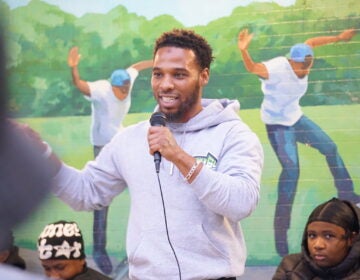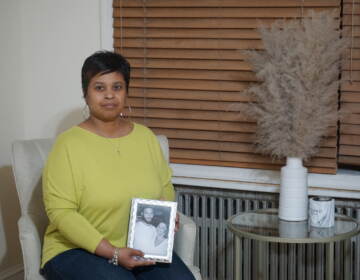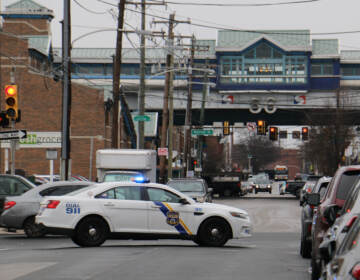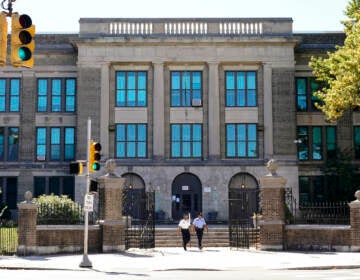Philly youth are rallying against the court system. Could repairing it turn the tide on gun violence?
A group of Philly teens is fighting for juvenile justice reform. Their demands reveal cracks in a system they say is allowing gun violence to thrive.
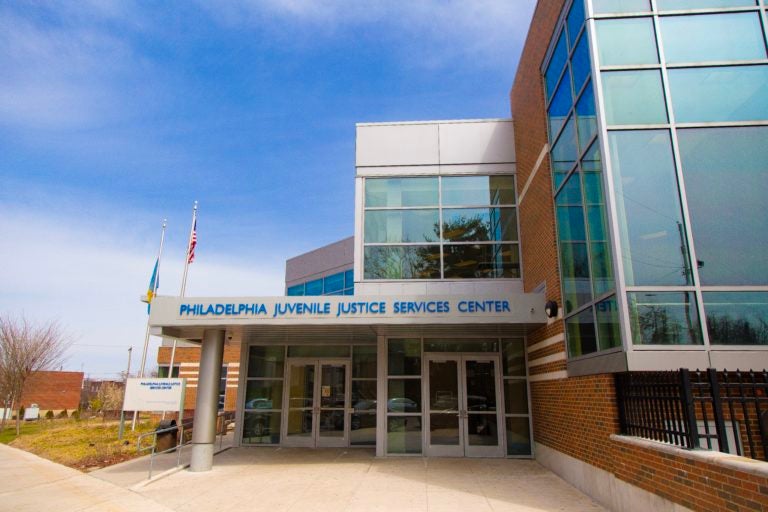
Philadelphia Juvenile Justice Services Center (City of Philadelphia)
From Philly and the Pa. suburbs to South Jersey and Delaware, what would you like WHYY News to cover? Let us know!
Humzullah Johnson, recently released from juvenile detention, appeared in Philadelphia Family Court for a probation hearing. The 18-year-old, who served 14 months for a carjacking-related offense, received the terms of his probation: a 60-day check-in, an ankle tracker, and weekly visits with a probation officer.
After the court session, his support network, including his mother, legal representation, and advocates from YEAH Philly — a group serving legal, mentoring, and mediation needs for teens with criminal charges — gathered together. Their immediate goal was to provide essential support, such as securing bedroom furniture, a driver’s license, and a cell phone. Johnson, who successfully completed probation in early July, attributes his post-release achievements to this robust support system. He acknowledges that without such help, his path might have been different. His journey now includes distancing himself from negative influences and focusing on positive changes.
“That transition is important,” said James Aye, YEAH Philly co-founder. He’s been helping Humzullah Johnson and other young people.
“If he comes home to nothing, that’s like a setup to, ‘Alright well how am I gonna go get it myself?’”
YEAH Philly emphasizes the necessity for community-based support for youth exiting detention. There is a growing call for expanding these services and increasing oversight of the juvenile justice system, from judicial conduct to detention facility conditions.
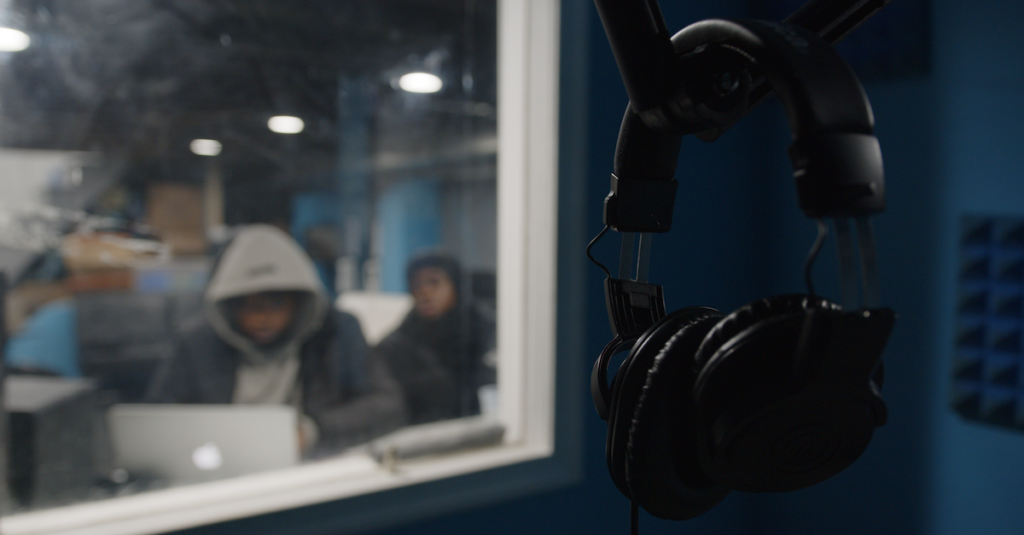
Mapping out solutions
Philadelphia sued the state over custody issues at the Juvenile Justice Services Center in 2022, alleging overcapacity and subpar conditions. The lawsuit cites violence among detainees and insufficient staffing, leading to inadequate care and safety. Plaintiffs filed a “motion for civil contempt and sanctions,” earlier this fall, requesting that the court take action against the state for failing to improve conditions at the center.
The center’s challenges partly stem from the closure of 15 juvenile facilities since 2006, according to the Pennsylvania Juvenile Court Judges’ Commission. Tyler McDaniels, aged 19 and previously detained at the center, characterized the conditions there as chaotic, marked by frequent violence and substandard living conditions.
The Philadelphia Family Court is seeking better placement options, including local facilities and non-residential alternatives like evening reporting centers and GPS tracking. Additionally, the city of Philadelphia has established an Office of the Youth Ombudsperson, led by lawyer Tracie Johnson, to oversee child welfare and juvenile justice systems.
Johnson’s role, created following a revealing 2019 report on racial disparities and repeat offenses in youth residential placements, involves enhancing oversight and providing financial assistance to young people and their families. The report urged the city to expand prevention services, issue public reports, develop local residential programs, and ensure better educational opportunities for detained youth.
Meanwhile, community groups like YEAH Philly continue to push for reforms. The organization petitioned for system accountability and sent letters to judges they want to face discipline. Their demands include independent oversight for the Family Court, comprehensive support services, and more rehabilitation options.
The city’s most recent budget allocates funds for trauma services for juvenile detainees and increased staffing at the Juvenile Justice Services Center.
The city’s Department of Health Services reports that it publishes annual progress reports and has initiated various prevention and diversion initiatives. These include the Don’t Fall Down in the Hood program, the Intensive Prevention Services program, and the Community Evening Resource Centers program. Additionally, they are developing small residential programs to keep youth near their homes and offering extra support to parents of children reentering society from the justice system, according to the department.
“There are numerous owners of this problem space, and without public information and understanding it’s very hard to fix certain things,” said Adam Serlin, a data analyst who recently authored a May report for the District Attorney’s Office about rising cost and inefficiency in the juvenile justice system. “Everyone can point fingers at everyone else.”
The city’s fiscal year 2023-2024 budget does include roughly $2 million to support trauma services for juvenile detainees and $1 million per year to increase staffing at JJSC.
‘Police the judges’
Activism for change is evident in public demonstrations, too. In March, a protest near Philadelphia City Hall, featuring chants like “Black Lives Matter” and “Police the Judges,” reflected the community’s dissatisfaction with the current system. Some protesters wore all-white garments with pointed hoods, holding signs reading, “Ku Klux Kourts.”
“[The judges] take away our rights and make us feel like we nothin’,” said one young demonstrator who wished to stay anonymous because he’s currently involved with the justice system. “We all come from somewhere, we all got a life. They just look at us and paint us as this and that. We not bad people.”
Presley Barner, 17, wore a long, black judge’s robe and held a megaphone. She hasn’t been in the system herself, but said she’s seen too many friends get locked up on what she feels are unfair charges.
“We out here protesting man, these judges is crooked,” she said.
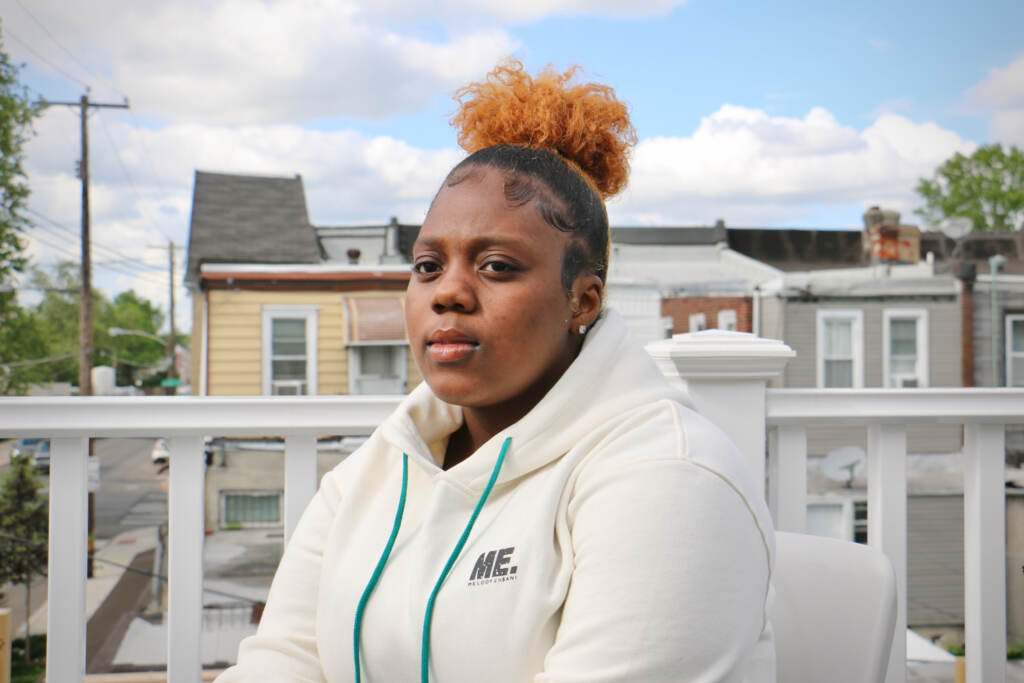
The group is calling to oust three judges they say are administering overly harsh sentences.
Representatives from Philadelphia Family Court said they would not comment on YEAH Philly’s complaints and would not make any of the three judges available.
When asked which agencies oversee Philadelphia’s juvenile courts, representatives answered “none.”
Court transcripts acquired by YEAH Philly teens and provided to WHYY News show judges taking stern attitudes with youth; one judge repeatedly threatened to try a young person as an adult if he didn’t attend his court-ordered program. In another case, a judge told a young man on probation he would not be permitted to walk his dog while wearing his ankle tracker.
Members of the public can file formal complaints against juvenile court judges by filling out a complaint form on the Judicial Conduct Board of Pennsylvania’s website, and then printing it out and either mailing it or delivering it. There is no online form option.
Those complaints are not public record, said the board’s Chief Counsel Melissa Norton. Once a complaint is received, Norton reviews it and determines whether to assign it to an attorney, who then conducts an investigation. An investigation can involve reading transcripts, listening to audio, and interviewing judges and witnesses, she said. Investigations can take more than a year to complete.
Last year the board received 945 complaints for adult and juvenile court, according to their 2022 Annual Report. Norton said that was higher than any previous year in memory.
But not every case gets investigated.
The board’s investigation revealed that more than half of the cases involved claims of legal error rather than misconduct, as per the report. Slightly more than a third were baseless, while about one-fifth related to bias or the judge’s demeanor.
Investigators send their completed investigations to the state’s Court of Judicial Discipline, and cases taken up by that agency become public record. There are no open disciplinary cases against any of the three judges YEAH Philly is calling out, according to court records.
Teens and YEAH Philly staff have filed multiple complaints against the three judges they have the biggest problems with and have not received a response on any of them beyond confirmation the complaint was received, according to staff.
Stopping the cycle
About 10% of gun violence victims are younger than 18, according to Philadelphia Police Department data. Young people are also carrying illegal weapons at a growing rate — they made up 9% of firearm possession arrests in 2017 and 36% in 2021, according to a multi-agency analysis of gun violence perpetrators.
Most youth charged with gun crimes often don’t qualify for diversion, which offers those with lesser offenses case management instead of jail. In 2021, Philadelphia’s DAO launched its first diversion program for serious felonies, emphasizing mediation between offenders and victims. A comparable California program saw a 44% drop in juvenile reoffending, as per a 2017 analysis.
The cycle of violence will only continue if the system doesn’t get an overhaul, said Kat Bakrania, youth reentry coordinator for a nonprofit called the Youth Sentencing and Reentry Project.
“These kids have guns and their friends are being killed,”she said. “We expect for their minds to change when their environments are not. They’re returning home to the same block. They’re returning home to the same situations. They’re returning home to the same trauma.”
Once youth leave placement and begin probation, they sometimes get tangled up in conflict at the court-ordered programs they have to attend on a weekly or twice-weekly basis, Aye said.
Marcia, who asked WHYY News not to use her last name to protect her family, was navigating court-ordered probation options for her 16-year-old last summer. Every Monday and Friday, she faced a tough choice: send her son to his assigned program and risk him getting hurt by another attendee, or keep him home and risk him being incarcerated again.
Her son was on probation after being convicted for illegal firearm possession, and his probation officer expected him to be at the NET Center, a court-ordered evening program in North Philadelphia.
She feared that her son would face issues with other teens at the program.
“These different sections, West Philly, North Philly, they all beefin’ with each other,” she said. “You can not be from that neighborhood and be gettin’ shot, gettin’ killed.”
She lost her older son to gun violence in July 2021, and she keeps a closer eye on her 16-year-old because of it.
“I don’t want to lose another son,” she said. “That’s why I don’t let my son go to the program.”
Her son was discharged from probation in August 2023, according to Aye from YEAH Philly.
DHS is trying to recruit more community-based organizations to add to its directory of court-ordered programs, staff said.
Aye said YEAH Philly, which runs on private donations, has never tried to be a contracted provider with DHS, and they’re not interested in becoming one. He said those programs provide little more than daily supervision to kids who need a lot more intensive support.
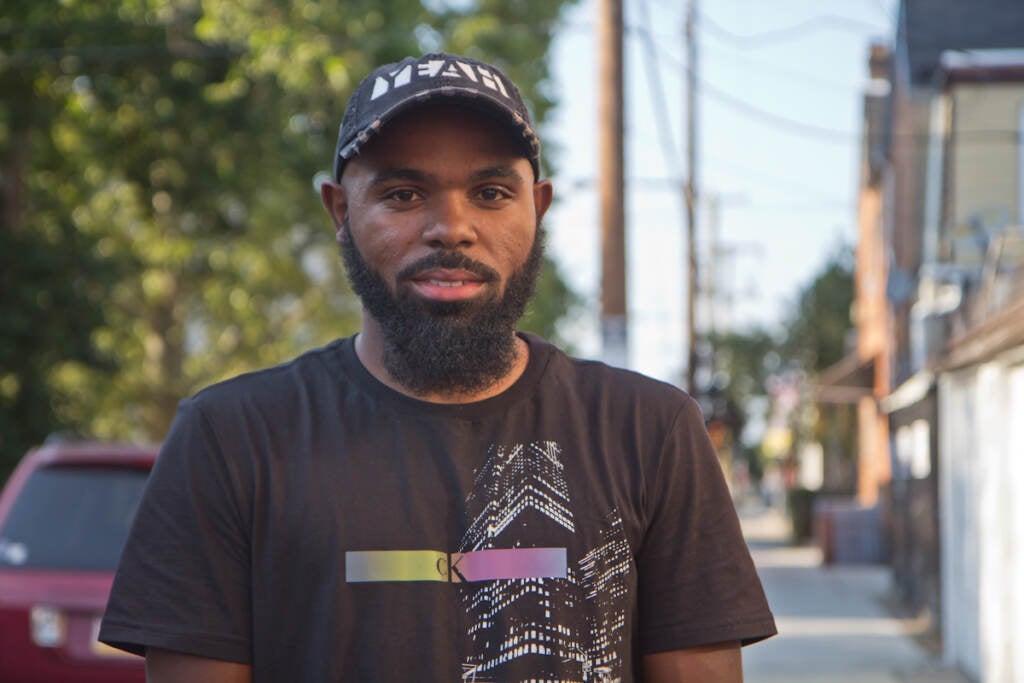
Kyleem Washington said when he got released from detention in 2020, he wasn’t comfortable going to his court-ordered program, and was able to convince his probation officer to let him hang out at YEAH Philly’s resource center instead.
Now the 19-year-old is raising his young daughter and preparing to go to community college for an electrician’s license in the fall. He said he wouldn’t have been able to do any of it without help from YEAH Philly staff.
“Other programs, to them you’re just a check,” he said. “You just a dollar bill. You come to YEAH Philly, to them you a family.”

Get daily updates from WHYY News!
WHYY is your source for fact-based, in-depth journalism and information. As a nonprofit organization, we rely on financial support from readers like you. Please give today.



